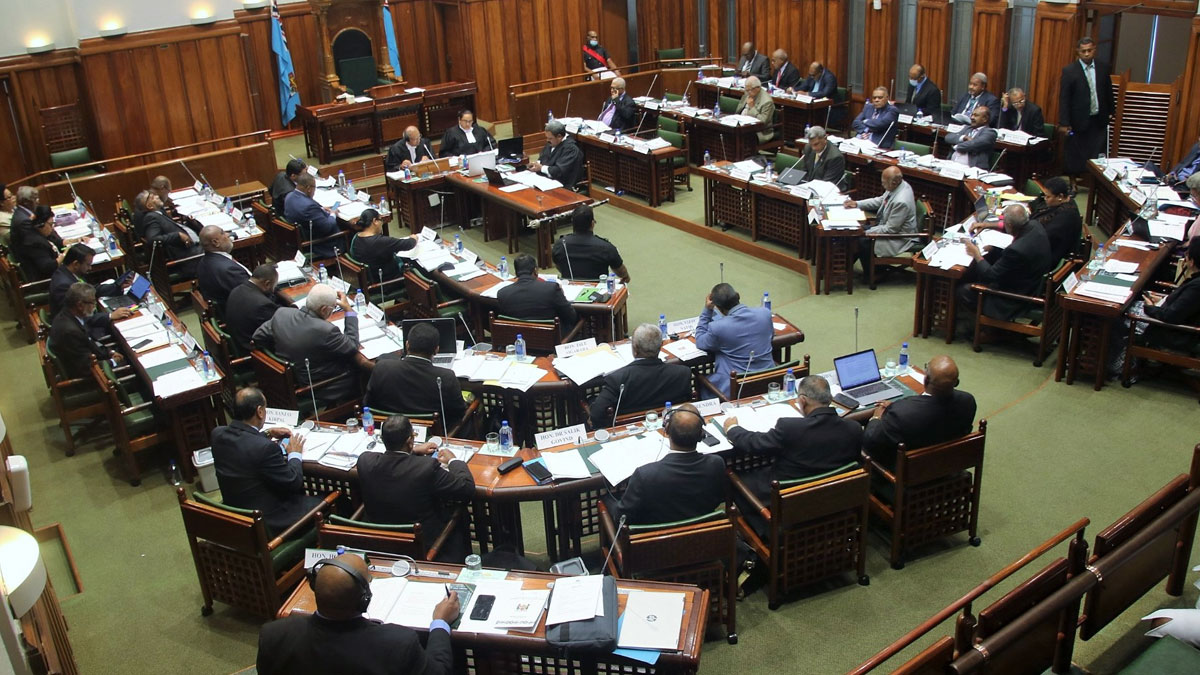
AG tables Electoral Amendment Bill in parliament to be debated and voted on without delay on Thursday
New proposed electoral law empowers Electoral Comm to adopt new guidelines for public opinion polls
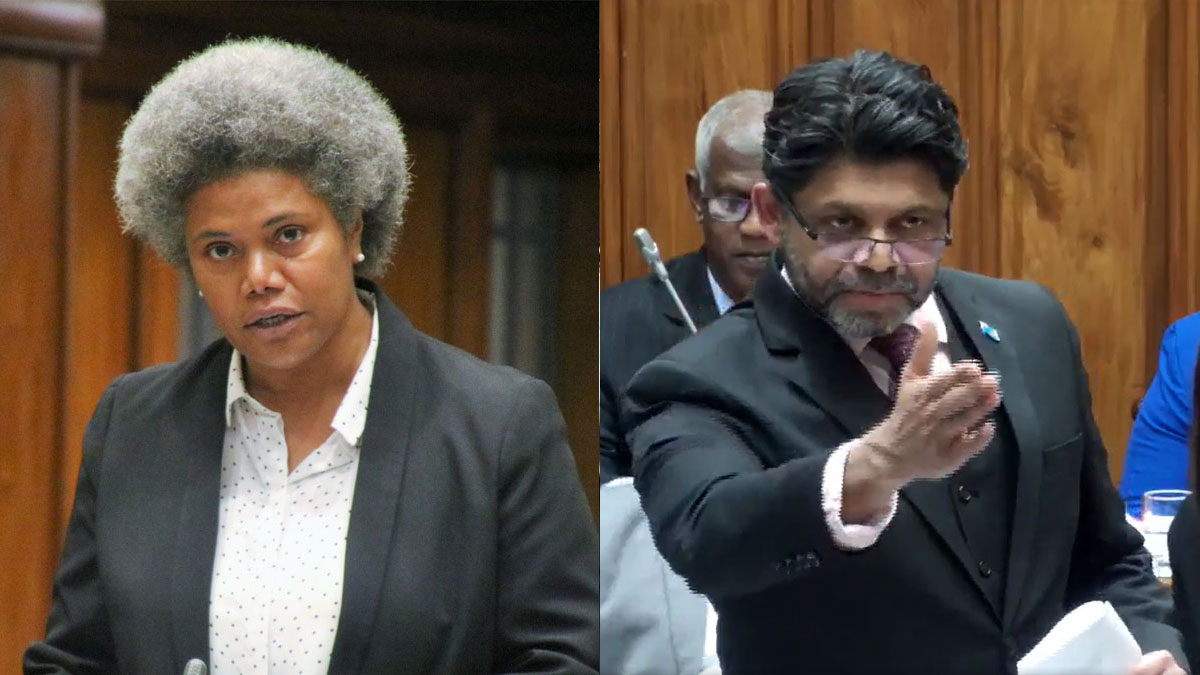
National Federation Party MP, Lenora Qereqeretabua says they will not bow down to the infantile, want-to-be, smart alec comebacks of a civil servant who has one job that is to ensure people register and vote and even that he fails at miserably while Attorney General Aiyaz Sayed-Khaiyum says Qereqeretabua nearly spent three quarters of her statement attacking the Supervisor of Elections and calling him all sorts of names.
While opposing the Electoral Amendment Bill, Qereqeretabua says now the Supervisor of Elections, Mohammed Saneem wants wide powers to demand any information from anyone at anytime simply based on reasons to believe that a person has information or documents relevant to or required by him to do his job.
She asks why does he want all these powers.
The MP says the Fiji Law Society has already criticized the breadth of these powers and their implications on human rights and the Law Society of Australia has spoken in similar terms.
Qereqeretabua adds no one person should be given this width and breadth of power.
She says the NFP rejects this Bill and condemns it in the strongest possible terms.
She also says the Supervisor bows at the feet of the Parliament and he is accountable to all of them despite the other side trying to protect him.
While responding in the right of reply to Qereqeretabua, Sayed-Khaiyum says Fiji’s development partners are taking Saneem overseas, saying use this what they have done in Fiji as an example to what you should do in your country.
Sayed-Khaiyum also says the Opposition knows they will lose the next elections and they are already looking for excuses.
The Bill has been passed in parliament.
Click here for the full coverage of the 2022 Electoral Amendment Bill
By: Vijay Narayan
Thursday 01/09/2022
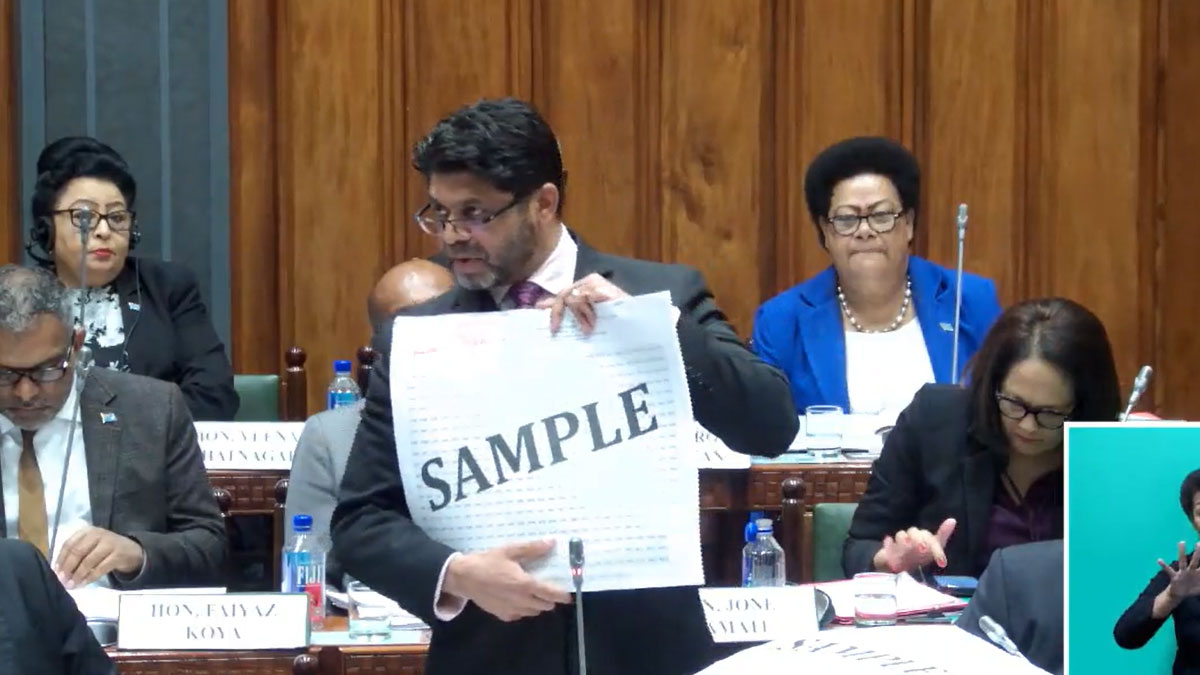
Attorney General, Aiyaz Sayed-Khaiyum has attacked the Fiji Law Society, saying they seem to be a mouthpiece of a cabal of people in Fiji as the Electoral Amendment Bill specifically deals with elections related matters.
While speaking on the Bill which will be debated and voted on this afternoon, Sayed-Khaiyum says the Bill states that if the Supervisor of Elections has reason to believe that a person has information or documents relevant to or required by the Supervisor for the performance of his or her functions under the Electoral Act, the Supervisor must, by notice in writing, direct the person to furnish such information or documents to the Supervisor.
He says the Fiji Law Society had said the amendment would give to the Supervisor of Elections power to compel any person to provide to him all or any information or documents on virtually any pretext.
The Attorney General says there is already a similar provision under the Political Parties Registration Act.
He says they are now objecting to it because they have read too many conspiracy books.
Sayed-Khaiyum says under the FICAC Act, FNPF Act, FCCC Act, Immigration Act, officers from the different agencies have the same powers for the enforcement of the actual act.
He also personally attacked President of the Fiji Law Society, Wylie Clarke that he has put his name to the Law Society statement, selling his name again. Sayed-Khaiyum also raised concern regarding the statement by the Law Council of Australia and CFL covering their statement.
The Attorney General also demonstrated in parliament the size of the ballot paper if we have 550 candidates in the next general elections and the weight that elections officials have to carry.
He says he asked the Supervisor of Elections if he could provide this to demonstrate the practical issues regarding the Bill.
Debate will continue on the Electoral Amendment Bill this afternoon.
By Vijay Narayan
Thursday 01/09/2022

The Law Council of Australia has today backed calls by the Fiji Law Society for the Fijian Parliament to take more time to consider and consult on the proposed Electoral Amendment Bill No. 49 in order to ensure it does not unnecessarily erode citizens’ right to privacy.
The Law Council says the proposed measures in the Bill would appear to vest the Supervisor of Elections with extraordinarily broad information gathering powers, without appropriate safeguards or oversight mechanisms.
The Australian body says there is no right of appeal against a decision by the Supervisor other than to the Fijian Electoral Commission which is final and cannot be further appealed or reviewed by any court.
The Law Council of Australia takes the view that coercive information gathering powers, such as these, must be seen as exceptional, particularly when used in executive rather than judicial processes, given their intrusive impact on individual rights, including the right to privacy.
The Law Council has taken the view that the use of such powers is justified only when necessary to achieve a legitimate purpose and only when accompanied by sufficient protection against their overuse or misuse and by provisions to mitigate their adverse impact on individual rights.
The Council says it is essential that the public has a credible basis upon which to be satisfied that these powers are necessary in response to legitimate and evidence-based threats to the Fijian electoral process.
It says in this case, no such justification appears to have been made out, and the necessity of the proposed powers does not appear to have been clearly or adequately established.
The Law Council says the Bill also lacks safeguards, including the apparent absence of a right of appeal from the Supervisor’s exercise of powers. The Law Council concerns include that the Bill may encroach upon legal professional privilege.
It says legal professional privilege remains an important aspect of the proper administration of justice and facilitates the rule of law in the public interest.
The Council says privilege belongs to the client, not the lawyer.
It says the doctrine of legal professional privilege promotes the fostering of trust and candour in the relationship between a lawyer and client, ensuring a client can obtain full and frank legal advice from their representative.
The Law Council of Australia says the Bill’s impact upon legal professional privilege along with broader rights and privileges, should be carefully reviewed before it progresses further.
The Law Council is also concerned by the reported use of urgency powers to introduce and debate the Bill.
It says more time must be provided for consideration of legal and civil rights ramifications, and any safeguards which are necessary to protect rights and privileges, before the Bill is voted on by the Parliament.
The Bill will be debated and voted on in Parliament today.
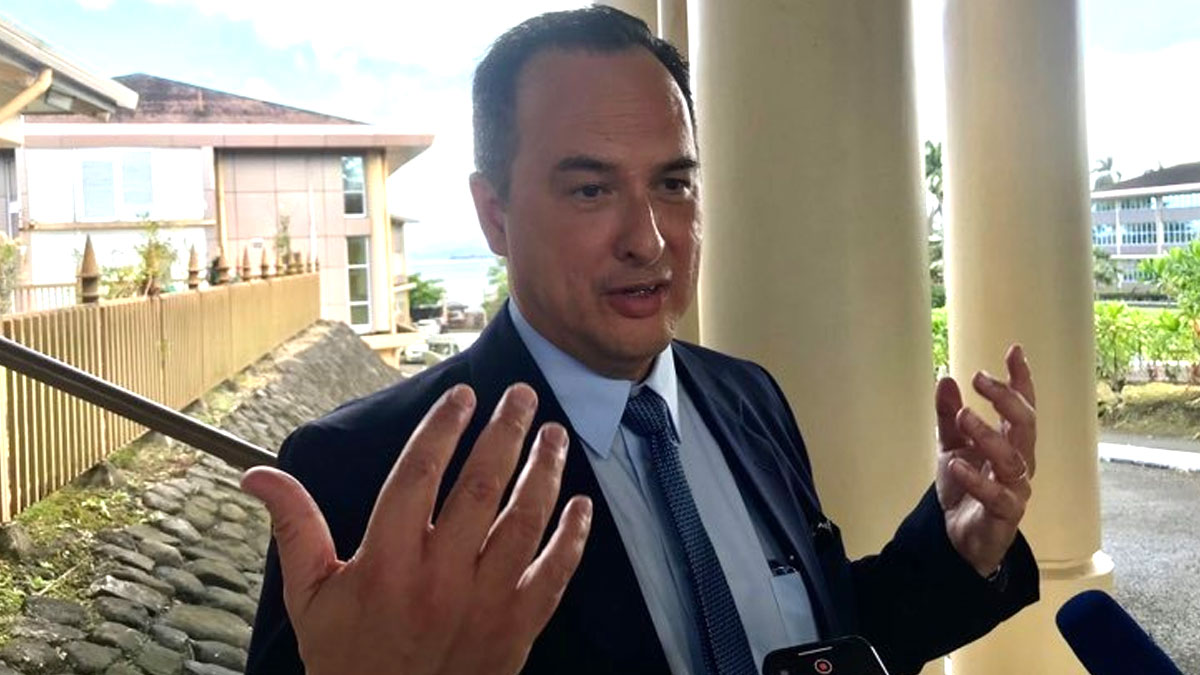
The Electoral Amendment Bill that will be debated and voted on in Parliament tomorrow states that if the Supervisor of Elections has reason to believe that a person has information or documents relevant to or required by the Supervisor for the performance of his or her functions under the Electoral Act, the Supervisor must, by notice in writing, direct the person to furnish such information or documents to the Supervisor.
The Fiji Law Society says if the Bill is passed tomorrow, these powers to be given to the Supervisor are really concerning.
Any person who, having been lawfully required under the section of the Act to disclose any information or document to the Supervisor must, notwithstanding the provisions of any other written law on confidentiality, privilege or secrecy, comply with such direction.
Any person who fails to comply with the directions of the Supervisor or provides information that is false, commits an offence and is liable on conviction, in the case of a natural person, to a fine not exceeding $50,000 or a term of imprisonment not exceeding 5 years or both; and in the case of a company, association or body of persons, whether corporate or unincorporated, government department, nongovernmental organisation, statutory authority or any other entity, to a fine not exceeding $500,000 and for the director, chief executive officer, minister, manager or officer in charge for the time being, to a fine not exceeding $50,000 or a term of imprisonment not exceeding 5 years or both. While moving the motion for the Bill to be debated and voted on without delay, Attorney General, Aiyaz Sayed-Khaiyum said that Clause 2 of the Bill amends the Electoral Act by redefining the term “person” to mean a natural or legal person and includes a company, association or body of person, whether corporate or unincorporated, government department, nongovernmental organisation, statutory authority or any other entity.
He says the proposed amendments provide for the powers of the Supervisor of Elections necessary to carry out his or her functions under the Act, including the power to direct a person, by notice in writing, to furnish any relevant information or document.
Sayed-Khaiyum says without this specific power, the Supervisor is unable to make enquiries to obtain information necessary for the Supervisor to arrive at decisions as required by the Act.
He says such powers are also extremely important to allow the Supervisor to conduct enquiries into allegations of breaches of campaign provisions.
The Fiji Law Society is calling upon the Government to withdraw Bill No.49 from Parliament so that adequate time can be given to consider all of its legal and civil rights ramifications.
Society President, Wylie Clarke says the amendment would give to the Supervisor of Elections power to compel any person to provide to him all or any information or documents on virtually any pretext.
Clarke says the proposed changes are inconsistent with the international core values and principles to which Fiji has committed itself, including long established legal principles on legal professional privilege.
Clarke says they erode civil rights protections long protected by the law.
The Fiji Law Society President says the proposed electoral amendments unnecessarily extend the powers of the Supervisor beyond those necessary to fulfil his duties and powers under the Electoral Act.
He says they encroach on and duplicate powers of investigation that are already vested in the FICAC.
Clarke says if the Supervisor reasonably suspects that an offence has been committed under the Electoral Act, he can - as he has done many times already - report the matter to FICAC which will then exercise its powers of investigation.
The Law Society President says the attack on legal professional privilege is particularly serious.
He says the reason the privilege exists is to enable people to take legal advice on any action they wish to take (or not to take) in the knowledge that in doing so they have protection.
The privilege means that no one in authority can use their questions, or the advice they receive, as evidence against them of some improper or unlawful intent. Clarke says if this privilege is taken away, people cannot take advice on their legal rights and cannot exercise them to the fullest extent and may end up breaching laws.
He says encouraging compliance with the law is the practice of democratic countries which support the rule of law.
Clarke says this Bill appears likely to be passed into law under urgency.
The Society is also very concerned that the Bill also provides no protections or safeguards for the information the Supervisor obtains in terms of how it will be used or kept.
Clarke says the Supervisor is not required to maintain confidentiality or secrecy in relation to the information and it appears such information can be used for any purpose the Supervisor chooses.
He also says there is no right of appeal against a decision of the Supervisor other than to the Fijian Electoral Commission which is final and cannot be further appealed to or reviewed by any court.
By Vijay Narayan
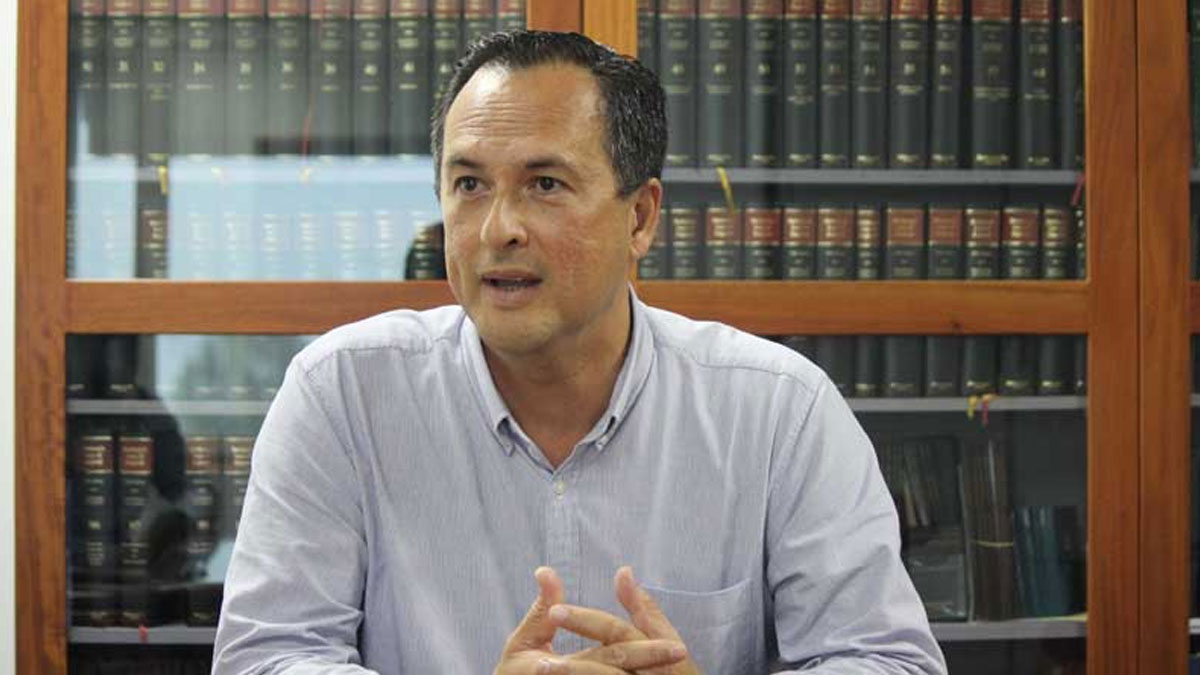
By: Vijay Narayan

Members of the Opposition today labelled the new proposed electoral amendments being brought in by the Government as stupid and silly requirements for campaigns and manifestos to punish the Opposition while the Attorney General, Aiyaz Sayed-Khaiyum says the Opposition should all stop whinging.
National Federation Party Leader, Professor Biman Prasad says it is highly irresponsible for the Minister for Elections to bring into parliament a bill to amend electoral laws under Parliamentary Standing Order 51, when we are so close to the elections.
He also says this is a government which has continued to empower the Supervisor, and the Supervisor of Elections is almost like a God now.
He says it is stifling democracy to no end, and he believes it gives powers to the Supervisor to harass candidates, supporters, agents and political parties.
Professor Prasad says this is complete dictatorship for the AG to bring the Bill just before an election is due.
He says some of the things that Sayed-Khaiyum is talking about like practical matters shows how stupid those laws initially were and there has been no attempt in the last 7 to 8 years to change those.
The NFP Leader says this Bill could have been brought in much earlier so that there could have been a proper discussion and consultation.
He also says we already have all kinds of conflicts of interest in this country including the Attorney General who is the Secretary General of the FijiFirst Party, the registered officer of the FijiFirst Party and also the Minister for Elections.
Professor Prasad then says that yes, political parties offer the moon sometimes but it is not for the AG, the Government, the Supervisor of Elections or somebody in the Electoral Commission to ask them to tell them on how they have to do it. He says it is for the people to decide on whether they want to believe it.
The NFP Leader says Sayed-Khaiyum does not want a law change to go to a committee to have more discussion on it, and Professor Prasad called for the Bill to be withdrawn.
Meanwhile SODELPA Leader, Viliame Gavoka says the elections will happen very soon and this is not the time to be changing or making new rules.
Gavoka asks where in the world do you have to cost your manifesto in order to campaign, and these are silly requirements.
While replying on the motion to debate the Bill on Thursday without delay, Sayed-Khaiyum says generally, Professor Prasad’s fluster situation stems from when he knows he is not doing really well with the members of the public and he tries to come and vent it out in parliament.
He says it would appear that Prasad’s objection to this bill is only on section 3 to give the Supervisor the powers to carry out his work.
Sayed-Khaiyum also says if you have a country, that has a historical record where politicians have used ethnicity and false promises to try and win office, laws have to be put in place to ensure that we provide a level playing field.
He says Ro Filipe Tuisawau is talking about an electoral system that was imposed.
The Attorney General says in the previous elections, NFP got 20 percent of votes but they were not in parliament, but now with 5 to 7 percent votes, NFP is in parliament.
Sayed-Khaiyum also says Gavoka has joined this chorus of stupid and there is no creative thinking. He says a bit more finesse would have been obtuse perhaps.
He says the Opposition should just present the figures on how they will fund their policies.
Sayed-Khaiyum also says here we have a professor saying this is a dictatorship. He says a dictator is a ruler with total power over one country.
By: Vijay Narayan
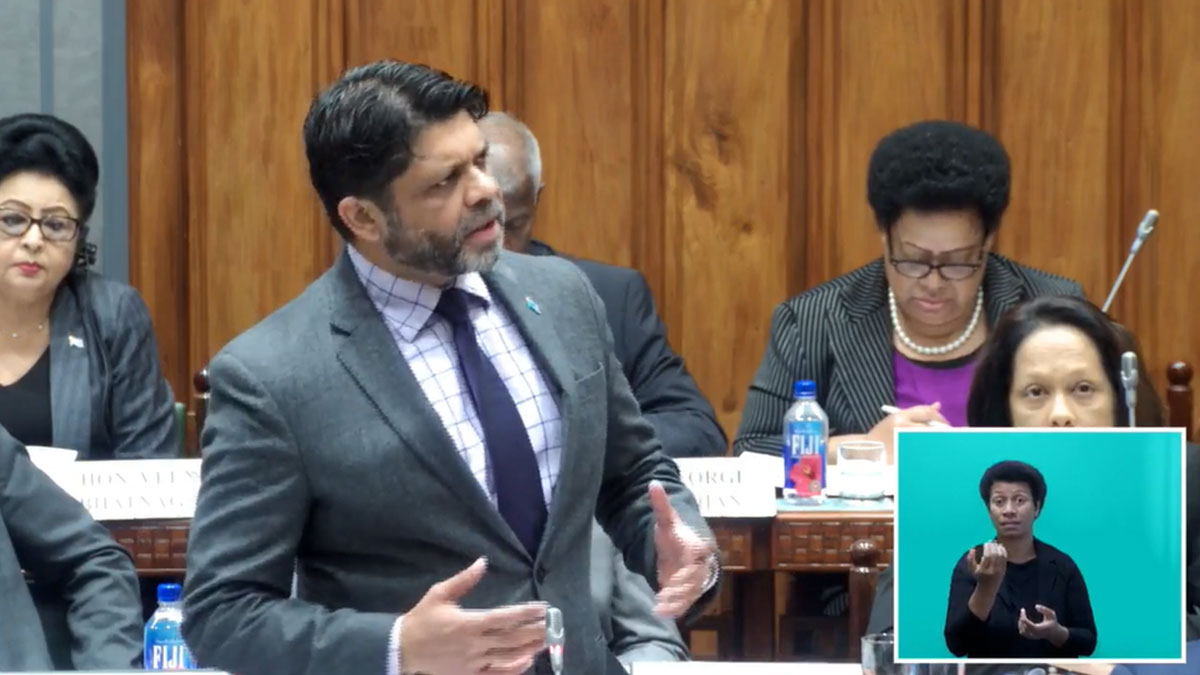
Parliament will debate the Electoral Amendment Bill on Thursday which proposes that the Supervisor of Elections be given powers necessary to carry out his or her functions under the Act, including the power to direct a person, by notice in writing, to furnish any relevant information or document.
Clause 2 of the Bill amends section 2 of the Electoral Act by redefining the term “person” to mean a natural or legal person and includes a company, association or body of person, whether corporate or unincorporated, government department, nongovernmental organisation, statutory authority or any other entity.
While tabling the Bill in parliament under Parliamentary Standing Order 51 for the proposed law to be debated on and passed without delay this week, Attorney General, Aiyaz Sayed-Khaiyum says there are various provisions of the Act that refer to ‘person’ however, it is necessary to clarify that ‘person’ does not only mean a natural person but also a legal person so as to extend the application of the provisions to incorporated, unincorporated as well as other entities.
He says this definition will also be useful in determining any contravention of the Act.
Sayed-Khaiyum also says without this specific power under the Bill, the Supervisor of Elections is unable to make enquiries to obtain information necessary for the Supervisor to arrive at decisions as required by the Act.
He says such powers are also extremely important to allow the Supervisor to conduct enquiries into allegations of breaches of campaign provisions.
He says various sections of the Electoral Act such as sections 116(4)(c),118, 141, 144 and 144A require the Supervisor to make certain enquiries in order to be satisfied as to whether or not a contravention under the Act has occurred.
Sayed-Khaiyum also says given that the 2022 general election will take place once Parliament is dissolved, it is necessary that such amendments are made expeditiously to avoid any potential procedural conflicts under the Act.
The Bill also amends the Electoral Act to allow the numbers used in an election of Members of Parliament to be used in any future election of Members of Parliament.
The Attorney General says as at 28th August 2022, there are 9 registered political parties in Fiji and the Fijian Elections Office is currently processing the application of another political party.
He says if the registration is approved, the total number of political parties contesting the 2022 general election will be 10.
According to the Act, each political party may nominate up to 55 candidates (being the total number of seats as determined by the Electoral Commission for the 2022 general election) and therefore the maximum total number of candidates that can be nominated through political parties is 550.
Sayed-Khaiyum says the Electoral Commission has already approved, through a publicly conducted draw, that the first number in the ballot paper will be 173. In applying the provisions of the Act, the FEO assigns the numbers in series from 173 until all the candidates have been assigned numbers.
The Attorney General says there is a likelihood that the series will repeat the numbers from the 2018 general election.
He says if such repetition occurs and section 36(7) of the Electoral Act is not removed, the validity of the entire election is at stake.
Sayed-Khaiyum says one must also consider that 4 years have passed since the last election and individuals will have likely forgotten the numbers from the last election.
The Bill also amends section 100 of the Act to allow the Electoral Commission to approve the method of packing unused, used and spoiled ballot papers after the count of the ballot papers.
In the event that there are 550 candidates, the ballot paper size will be 420 mm x 528 mm.
This will mean that not all the ballot material may fit into a ballot box after the count of the ballot papers.
Logistically, the weight of a ballot box will exceed 12.5 kg making it difficult to carry by hand.
Sayed-Khaiyum says it is therefore necessary that the Electoral Commission be empowered to consider the practicality of the operations in order to approve the best means for a transparent, safe and variable mechanism to transport ballot material from polling stations.
By: Vijay Narayan
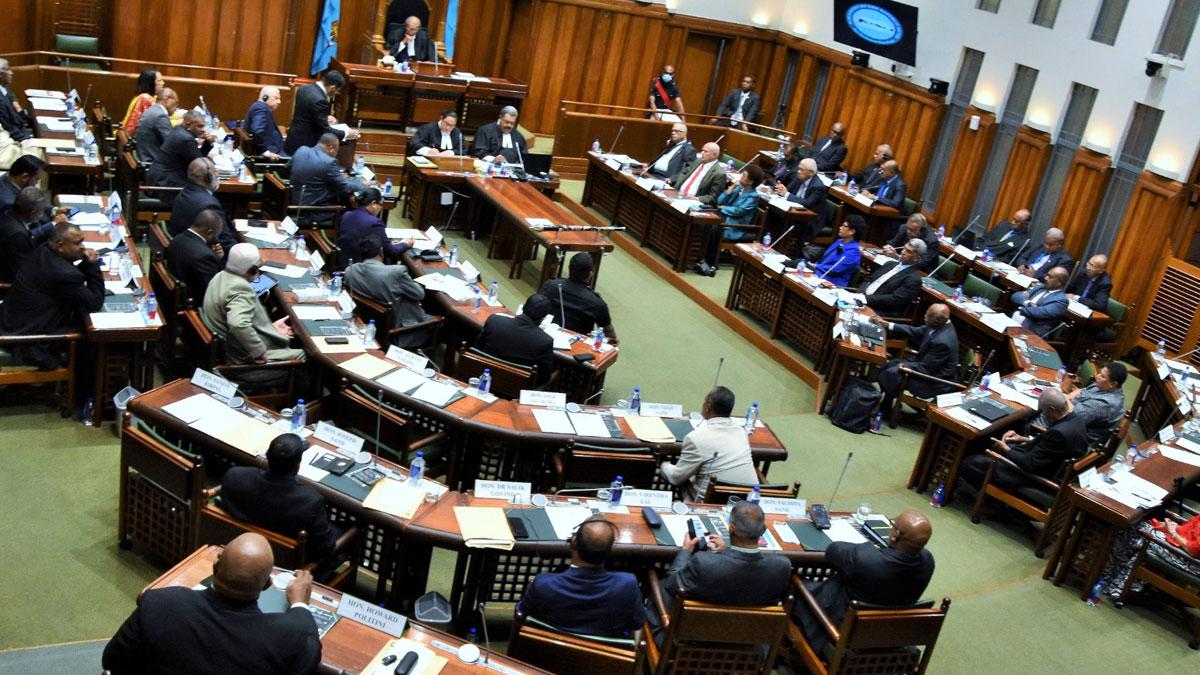
The new proposed electoral law is proposing that the Electoral Commission is empowered to adopt the latest guidelines and standards to apply to Fiji and the Supervisor of Elections is further tasked to vet compliance by any public opinion poll published in Fiji.
The Electoral Amendment Bill which will be debated and voted on Thursday without delay under Parliamentary Standing Order 51, provides that the Supervisor is required to verify compliance and to take necessary action to ensure that the guidelines are fully complied with.
Any appeal against the decision of the Supervisor under section 110A of the Act can be made to the Electoral Commission.
The Bill inserts section 110A to the Electoral Act to empower the Electoral Commission to adopt and publish guidelines on opinion polls, surveys and research related to elections, as it deems fit for the conduct of free and fair elections.
Attorney General, Aiyaz Sayed-Khaiyum says to protect the integrity of the electoral process and the results of the general election, it is necessary that all public opinion polls in Fiji adhere to international standards and guidelines which, under the amendment, the Electoral Commission may adopt as part of its powers and functions under the Act.
Stay tuned for the latest news on our radio stations

